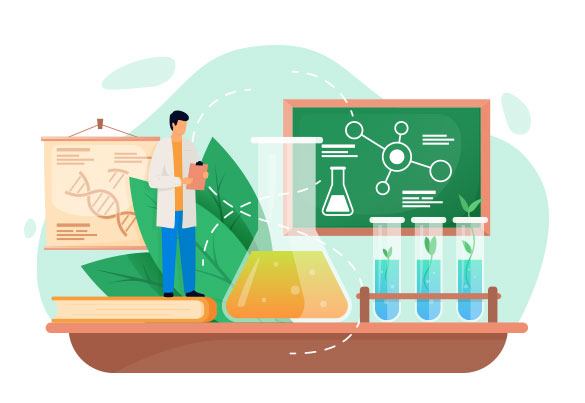De novo Molecular Design
Virtual screening can identify key substances through screening compound databases or virtual libraries. Virtual screening is an optimal choice when the synthesis of molecules is easy or when virtual compounds are readily available. However, when the amount of data is large, the computational cost of discovering molecules using databases or virtual libraries is relatively high. De novo molecular design is a technique aimed at generating new active molecules in the drug development process. It has the advantage of generating only a relatively small number of molecules and exploring the chemical space through a search or optimization procedure, the entire chemical space can be therefore explored using a scoring function. However, without any constraints or chemical property assessment, molecules formed by combinations of atoms and subatoms may be chemically unstable or difficult to synthesize.
BOC Sciences has applied various machine learning (ML) and deep learning techniques in the de novo molecular design, assisting in the virtual library building.
 Figure 1. Design of the de novo protein variants. (Caceres-Delpiano, J.; et al. 2020)
Figure 1. Design of the de novo protein variants. (Caceres-Delpiano, J.; et al. 2020)
Our Abilities
Molecular Design
- Evaluation of de novo molecular design
- Fully consider the diversity of scaffolds and fragments
We compare the generated chemical space with known chemical structures to measure the structural diversity and relevance of the proposed compounds
Molecular representation
- We choose the suitable molecular representation based on whether the molecular representations are discrete (e.g., bit vectors), continuous (e.g., floating point vectors), and invertible
- Simplified Molecular Input Line Entry System (SMILES), Deep SMILES and SELFIES are available
- Encode the presence or absence of functional groups
- Molecular topology graph is used as its representation
- 3D information describing bond angles
Gradient-free molecular optimization
Given a molecular representation, an optimization algorithm can be used to guide the generation of optimal molecules based on the calculated objective function
- Atom-based
- Fragment-based
- Reaction-based
We use a graph-based genetic algorithm (GB-GA) to perform atom-based de novo design
Fragment-based approaches can constrict the generation of new compounds to contain known related substructures
We perform forward reactions in silico to synthesize virtual molecules
Gradient-based molecular optimization
- Atom-based
- Fragment-based
- Reaction-based
Our atom-based generation models include the use of SMILES, GraphVAE and MolGAN as molecular representations
We use a coarser molecular representation to constrain the search space
ML is employed to predict synthetic routes from large reaction databases and generate molecular templates
- 3D de novo molecular design
Our 3D molecular structures can be generated directly by generative models through conditional generation. The direct 3D generation have potential application in the optimization of protein-ligand binding (thus bypassing docking search algorithms) or predictioon of crystal packing.
BOC Sciences provides professional, rapid and high-quality services of De novo Molecular Design at competitive prices for global customers. Personalized and customized services of De novo Molecular Design can satisfy any innovative scientific study demands. Our clients have direct access to our staff and prompt feedback to their inquiries. If you are interested in our services, please contact us immediately!
Reference
- Caceres-Delpiano, J.; et al. Deep learning enables the design of functional de novo antimicrobial proteins. J.Caceres. 2020.
